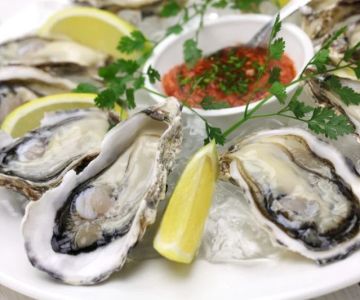
- 1. Understanding Mediterranean Cuisine and Its Focus on Freshness
- 2. The Benefits of Creating Seasonal Menus in Mediterranean Restaurants
- 3. How Mediterranean Restaurants Are Using Seasonal Ingredients
- 4. Real-World Examples of Mediterranean Restaurants Using Seasonal Menus
- 5. The Future of Seasonal Menus in Mediterranean Restaurants
1. Understanding Mediterranean Cuisine and Its Focus on Freshness
Mediterranean cuisine is known for its vibrant flavors, healthy ingredients, and rich cultural heritage. Emphasizing fresh produce, healthy fats like olive oil, and simple preparation methods, this cuisine naturally aligns with the idea of using seasonal ingredients. Mediterranean dishes often reflect the region’s diverse climates and fertile lands, where local farmers and fishermen provide the foundation for these flavorful meals.
In Mediterranean restaurants, freshness is key, and many of them are creating seasonal menus to ensure that their dishes feature the best and most flavorful ingredients available at any given time. From ripe tomatoes in the summer to hearty root vegetables in the fall, the changing seasons offer an ever-evolving array of ingredients that can transform a menu and provide guests with the freshest dining experience possible.

Bel Ami Cafe / bel ami cafe
New YorkNew York CountyNew York
866 Lexington Ave, New York, NY 10065, USA
2. The Benefits of Creating Seasonal Menus in Mediterranean Restaurants
Seasonal menus offer numerous benefits not only for the restaurants but also for the customers. Here’s why Mediterranean restaurants are embracing seasonal dishes:
2.1. Maximizing Freshness and Flavor
Seasonal ingredients are often at their peak in terms of flavor and nutrition. For Mediterranean restaurants that prioritize fresh, high-quality ingredients, using what’s in season ensures that every dish is bursting with flavor. For example, in the summer months, Mediterranean restaurants may feature fresh berries, zucchini, and tomatoes, while autumn brings roasted squash, root vegetables, and mushrooms—each offering a unique flavor profile that enhances the dining experience.
2.2. Supporting Local Farmers and Sustainability
Seasonal menus also allow Mediterranean restaurants to support local farmers and sustainable food systems. By sourcing ingredients that are in season, restaurants reduce their carbon footprint by limiting the need for transportation and refrigeration. This farm-to-table approach benefits local economies and ensures that restaurants are working directly with small-scale, sustainable producers. The result is a more environmentally friendly and socially responsible dining experience.
2.3. Keeping Menus Fresh and Exciting
Seasonal menus help keep a restaurant’s offerings fresh and dynamic. By changing dishes based on what’s in season, customers can look forward to new and exciting flavor combinations. This helps maintain customer interest and loyalty, as people return to enjoy the variety and creativity that seasonal menus offer. Furthermore, offering dishes that change with the seasons can help restaurant owners adapt to the availability of local ingredients and reduce food waste.
3. How Mediterranean Restaurants Are Using Seasonal Ingredients
Mediterranean restaurants have long been known for their focus on fresh, healthy ingredients, but more and more are using the concept of seasonal menus to take their offerings to the next level. Here’s how they are incorporating seasonal ingredients:
3.1. Embracing Local and Seasonal Produce
One of the hallmarks of Mediterranean cuisine is the use of fresh vegetables, fruits, and herbs. As the seasons change, Mediterranean restaurants can create menus that highlight what’s abundant at the moment. For example, during spring and summer, dishes might feature asparagus, tomatoes, eggplants, and olives, while winter might bring heartier vegetables like cabbage, carrots, and root vegetables. These ingredients are often sourced from local farms, ensuring maximum freshness and supporting the local agricultural community.
3.2. Incorporating Seasonal Seafood
Another key component of Mediterranean cuisine is seafood, which varies in availability depending on the season. In coastal regions, Mediterranean restaurants rely on seasonal seafood, offering dishes with freshly caught fish, shellfish, and other marine delights. The availability of fish like sardines, anchovies, and cod changes with the seasons, and restaurants will often adapt their menus to include the best catches of the moment, ensuring that customers enjoy only the freshest seafood.
3.3. Creative Use of Herbs and Spices
Herbs and spices play a crucial role in Mediterranean cooking, and they too can vary with the seasons. Fresh herbs like basil, mint, oregano, and thyme thrive in warmer months and are often incorporated into dishes like salads, pastas, and roasted meats. In cooler weather, heartier herbs such as rosemary and sage come to the forefront, adding depth and warmth to Mediterranean stews, soups, and roasts. The ever-changing availability of these ingredients encourages chefs to get creative and develop new ways to showcase their flavors.
4. Real-World Examples of Mediterranean Restaurants Using Seasonal Menus
Across the U.S., several Mediterranean restaurants are leading the way in creating seasonal menus that celebrate freshness. Here are some examples of restaurants that have successfully integrated seasonal ingredients into their offerings:
4.1. Osteria Mozza - Los Angeles, CA
Osteria Mozza in Los Angeles is known for its emphasis on seasonal, locally sourced ingredients. Chef Nancy Silverton and her team work closely with local farmers to craft a menu that changes throughout the year. In the warmer months, dishes like heirloom tomato salads and grilled fish with fresh herbs take center stage, while winter brings comforting pastas and roasted root vegetables. The restaurant’s commitment to seasonality ensures that every dish reflects the best of what’s available at any given time.
4.2. Fig & Olive - New York, NY
Fig & Olive is a Mediterranean restaurant that celebrates seasonal ingredients through its creative menu offerings. With locations in New York and other major cities, Fig & Olive offers a variety of dishes that change with the seasons, using fresh ingredients like seasonal vegetables, citrus fruits, and herbs. Their seasonal approach is evident in everything from salads and tapas to hearty main dishes, making them a favorite among diners who crave fresh and flavorful Mediterranean fare.
4.3. Ilili - New York, NY
Ilili, an acclaimed Mediterranean restaurant in New York, focuses on using fresh, seasonal ingredients to craft traditional dishes from the Mediterranean region. Their seasonal menus feature dishes like lamb kebabs with grilled vegetables in the summer, and rich stews with winter squash and root vegetables in the colder months. By incorporating seasonal ingredients into their dishes, Ilili maintains a strong connection to the traditions of Mediterranean cuisine while offering modern, fresh takes on beloved recipes.
5. The Future of Seasonal Menus in Mediterranean Restaurants
The future of seasonal menus in Mediterranean restaurants looks bright, with an increasing emphasis on sustainability, fresh ingredients, and customer engagement. As more diners prioritize healthy, fresh, and environmentally conscious dining options, Mediterranean restaurants will continue to adapt and evolve to meet these demands.
5.1. Increased Focus on Sustainability
As sustainability becomes a central focus in the food industry, Mediterranean restaurants will likely continue to deepen their commitment to using seasonal and locally sourced ingredients. This focus on sustainability will not only reduce the environmental impact of the restaurant but also offer customers the peace of mind that their meals are ethically sourced.
5.2. Enhanced Technological Integration
The integration of technology in Mediterranean restaurants will help streamline the process of sourcing and menu planning. From apps that track seasonal availability to platforms that connect restaurants directly with local farmers, technology will play a key role in the future of seasonal menus. This will make it easier for restaurants to offer the freshest, most sustainable options to their customers while reducing food waste.
If you're interested in discovering the best Mediterranean restaurants that celebrate seasonal ingredients, be sure to visit Dine Droop, where we provide the latest recommendations and reviews for top dining experiences.








 Banter NYC - West Village4.0 (324 reviews)
Banter NYC - West Village4.0 (324 reviews) 786 Crown Chicken and Pizza3.0 (101 reviews)
786 Crown Chicken and Pizza3.0 (101 reviews) The Four Faced Liar4.0 (475 reviews)
The Four Faced Liar4.0 (475 reviews) Emilio’s Wood Fire Pizza4.0 (343 reviews)
Emilio’s Wood Fire Pizza4.0 (343 reviews) The Lounge at Le Zie4.0 (26 reviews)
The Lounge at Le Zie4.0 (26 reviews) La Fonda Deli - Front St4.0 (181 reviews)
La Fonda Deli - Front St4.0 (181 reviews) How Coffee Shops Are Offering Seasonal Drinks That Attract New Customers and Keep Regulars Returning
How Coffee Shops Are Offering Seasonal Drinks That Attract New Customers and Keep Regulars Returning Best Grilled Veggie Sandwiches Near Me: A Healthy and Flavorful Vegetarian Option
Best Grilled Veggie Sandwiches Near Me: A Healthy and Flavorful Vegetarian Option Exploring Brunch Restaurants That Offer Creative Sweet and Savory Combos
Exploring Brunch Restaurants That Offer Creative Sweet and Savory Combos Discovering American Restaurants That Focus on Locally Sourced Meat and Produce
Discovering American Restaurants That Focus on Locally Sourced Meat and Produce How Brunch Restaurants Are Offering Unique Cocktails and Mocktails to Guests
How Brunch Restaurants Are Offering Unique Cocktails and Mocktails to Guests Discovering Pizza Restaurants That Focus on Quality Craftsmanship and Flavor Combinations
Discovering Pizza Restaurants That Focus on Quality Craftsmanship and Flavor Combinations